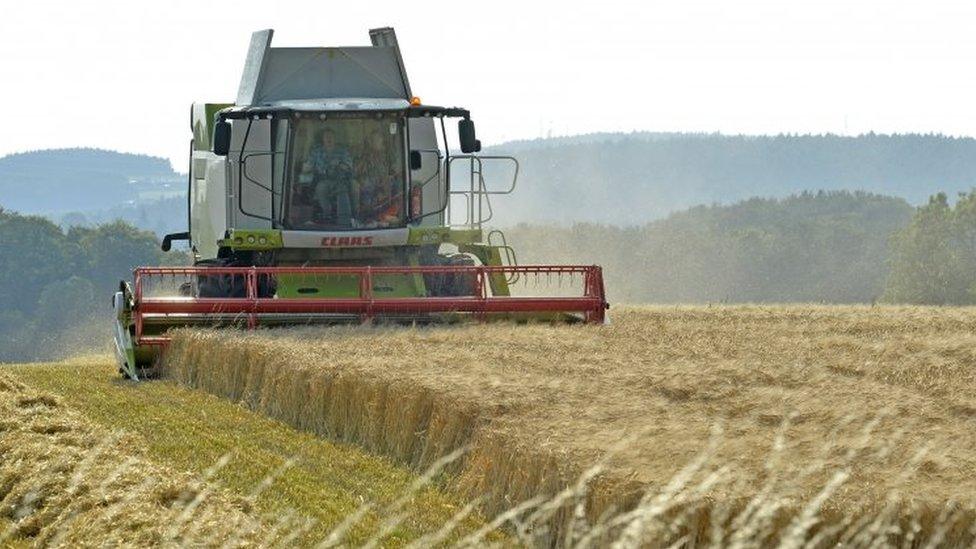NI farms could get 'basic income' guarantee post-Brexit
- Published
- comments
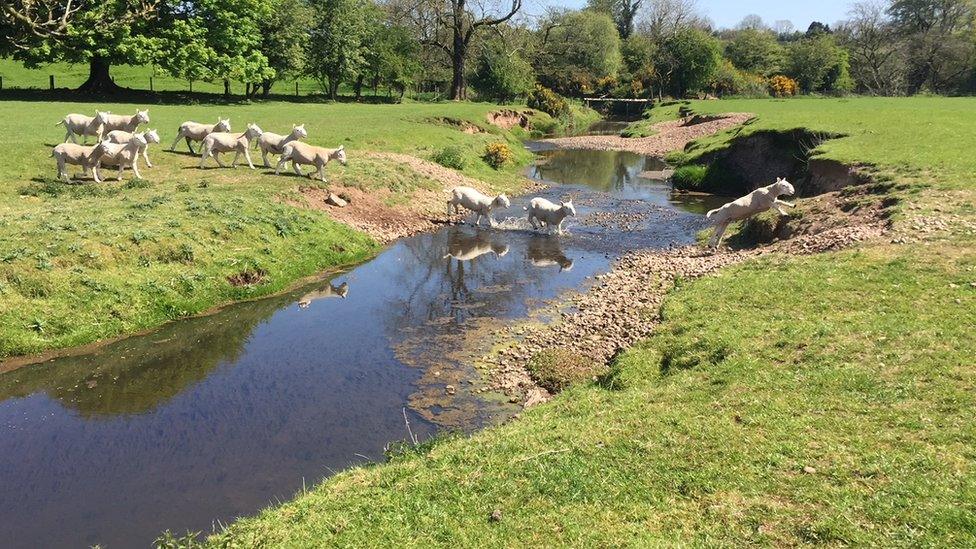
Many farms in Northern Ireland rely heavily on EU subsidies
A post-Brexit Northern Ireland agriculture policy could see a direct payment for farmers, but at a level "significantly below" that currently available from EU subsidies, it has emerged.
The payment could provide a guaranteed minimum income for farmers who rely heavily on subsidies.
If a model of "public money for public goods" were adopted, it is likely they could then increase it with payments for things like improved water quality and habitat protection.
The option of a guaranteed minimum payment came out in evidence to a Westminster committee.
It was written by a university academic who quoted an unpublished document from the Department of Agriculture, Environment and Rural Affairs (DAERA).
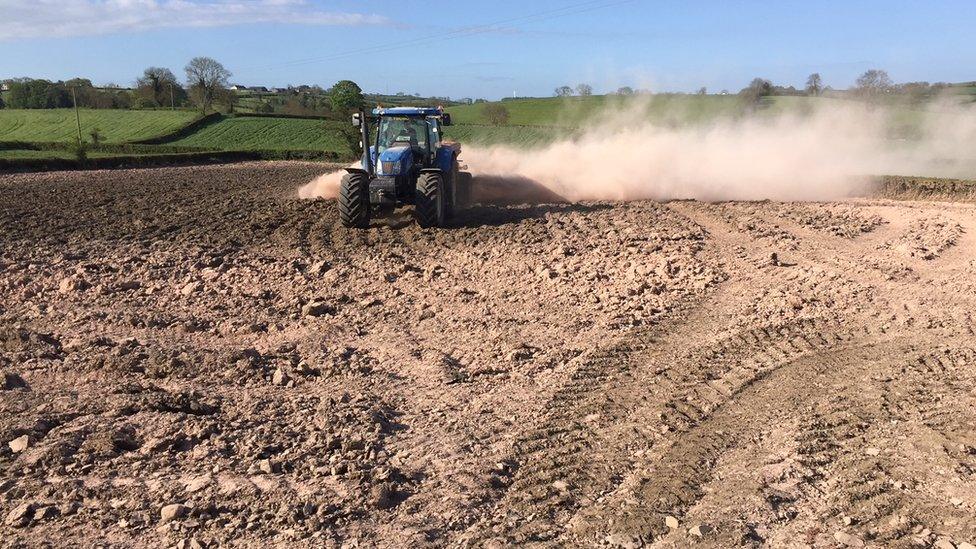
The basic income guarantee is a proposal in an unpublished DAERA document
DAERA said the document was still in draft and any decisions would be "for a future minister to take".
The document is the result of extensive consultation between civil servants and leaders of the agriculture industry and environment sectors.
Queen's University academic Dr Viviane Gravey quoted directly from the "Northern Ireland Agricultural Policy Framework Proposals", external in written evidence to the Northern Ireland Affairs Committee.
It is holding an inquiry into the impact of Brexit on agriculture in Northern Ireland.
She wrote that while DEFRA - the agriculture department in England - had long been opposed to the idea of income support, the same was not the case in Northern Ireland.
"Hence the recent DAERA proposal for a future agriculture policy in Northern Ireland, while critical of direct payments, nevertheless argues that some basic payment could be continued to foster farm resilience, although it 'would be at a level significantly below that currently provided under CAP Pillar 1'."
CAP Pillar One is the EU mechanism by which farmers are paid subsidies based on the amount of land they own.
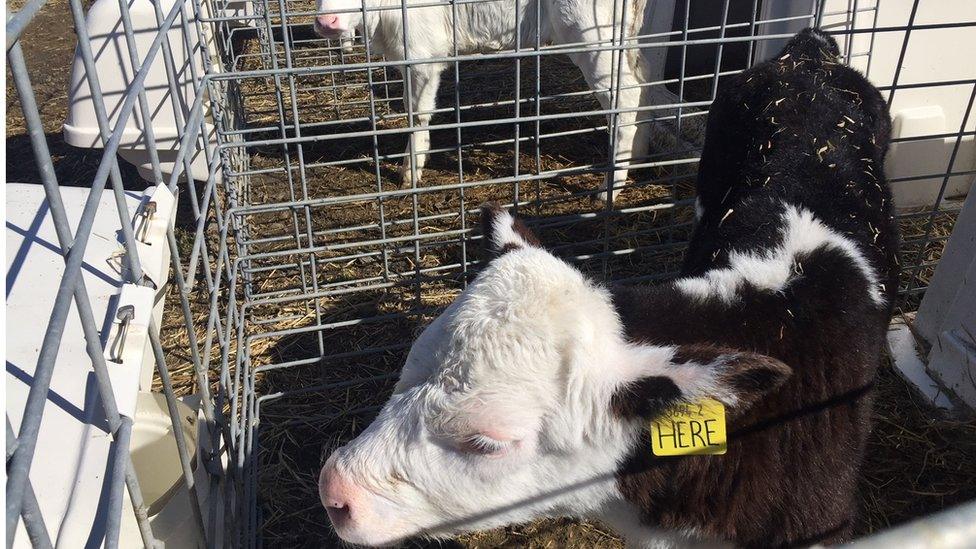
Work to develop a NI specific farm policy has been hampered by the collapse of Stormont
The Environment Secretary, Michael Gove, has promised that the level of agricultural support in the UK will be maintained at EU levels for the lifetime of this parliament - expected to be 2022.
England will then have a transition period where farmers will begin to be paid for providing environmental benefits.
The approach Northern Ireland takes will be a devolved matter though change is likely to be gradual to allow farmers to plan for it.
The work to develop a policy has been hampered by the lack of an executive and an assembly.
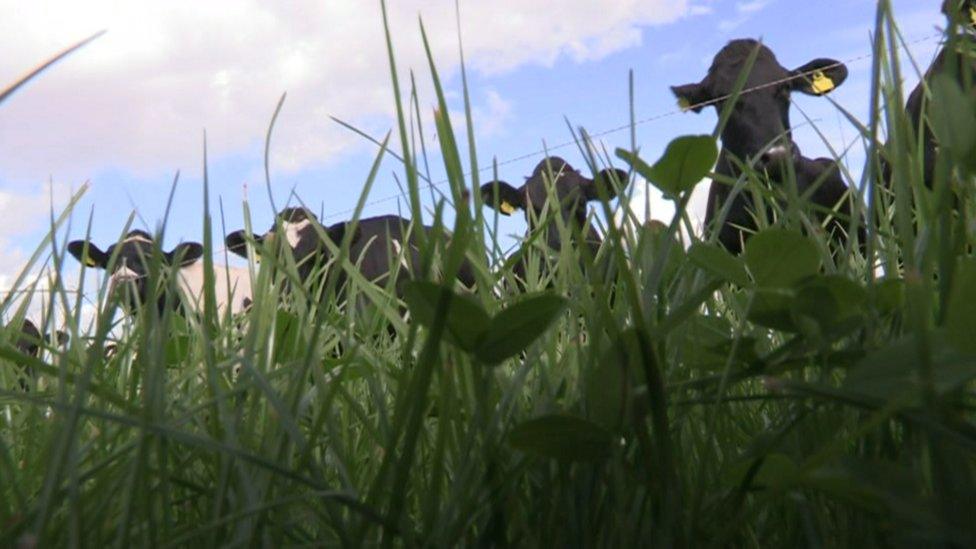
Farmers are still unclear what the future policy will look like
The framework document has four objectives for any new agriculture policy.
They include "increased productivity in international terms"; "improved resilience to external shocks"; "an agriculture industry that it environmentally sustainable" and "an industry which operates within an efficient, competitive and responsive supply chain".
That suggests any new policy will have a focus on education, training and technology; on some kind of insurance schemes to manage income fluctuations; a focus on environmental outcomes and improving relations within agricultural supply chains.
- Published5 January 2018
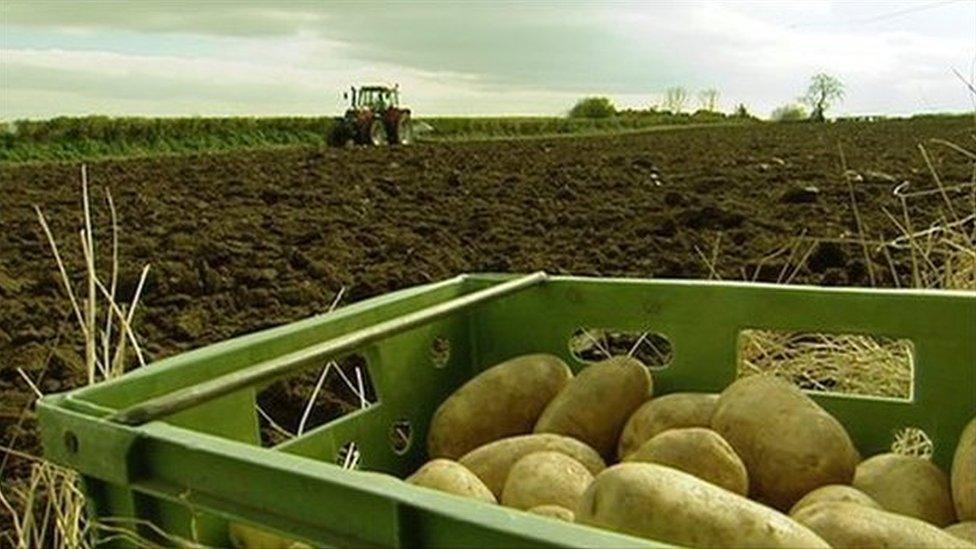
- Published26 January 2018
